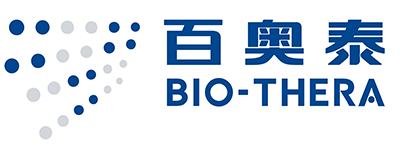- Bone Health
- Immunology
- Hematology
- Respiratory
- Dermatology
- Diabetes
- Gastroenterology
- Neurology
- Oncology
- Ophthalmology
- Rare Disease
- Rheumatology
Bio-Thera and Hikma Partner to Commercialize an Ustekinumab Biosimilar
Bio-Thera Solutions has found a partner to help with US distribution of its proposed ustekinumab biosimilar, which entered phase 3 trial development this summer.
Guangzhou, China-based Bio-Thera Solutions has partnered with UK-based Hikma Pharmaceuticals for the commercialization of a proposed ustekinumab biosimilar (BAT2206) for the treatment of chronic inflammation.
BAT2206 references Stelara, which was developed by Janssen Biotech. In the United States, Stelara is approved for the treatment of psoriasis, psoriatic arthritis, Crohn disease, ulcerative colitis, and plaque psoriasis.
Hikma would have rights for US commercialization of BAT2206 and first rights to negotiate marketing in the European Union. “This partnership provides us with a unique opportunity to enter the biosimilar market in the United States,” said Siggi Olafsson, CEO of Hikma.
In July 2021, Bio-Thera announced the first dosing of a patient in a phase 3 clinical study for BAT2206. The randomized, double-blind, parallel controlled study will compare the efficacy and safety of BAT2206 with Stelara in patients with moderate-to-severe psoriasis. Projected enrollment is 472 individuals in the United States and European Union.
Ustekinumab is a monoclonal antibody that suppresses the action of cytokines (interleukin 12/23) that contribute to the body’s inflammatory response.
Bio-Thera is developing biosimilars for bevacizumab (Avastin) and tocilizumab (Actemra), for the treatment of certain cancers and rheumatoid arthritis (RA), respectively. These pipeline products have completed phase 3 trials. The company is also developing golimumab (Simponi; RA), mepolizumab (Nucala; asthma), and dupilumab (Dupixent; asthma, eczema) biosimilars.
Hikma was founded in Jordan in 1978 and now has various FDA-inspected manufacturing sites globally. The company recently acquired Roxane Laboratories in Columbus, Ohio, in a move to build its non-injectables business.
Newsletter
Where clinical, regulatory, and economic perspectives converge—sign up for Center for Biosimilars® emails to get expert insights on emerging treatment paradigms, biosimilar policy, and real-world outcomes that shape patient care.


